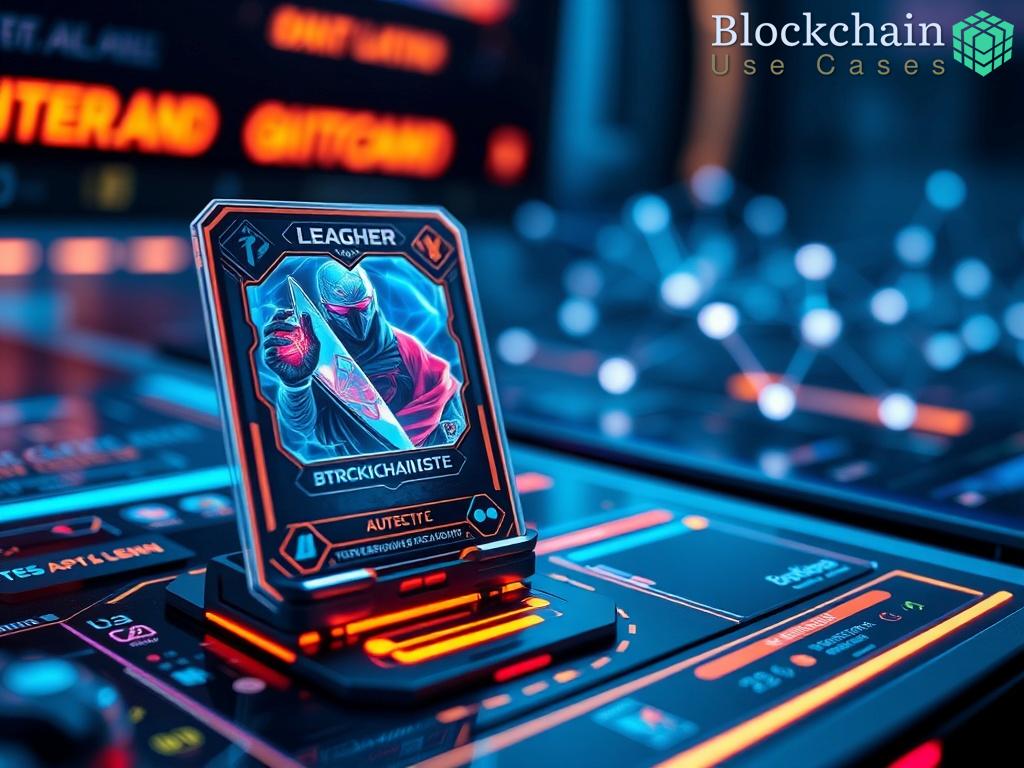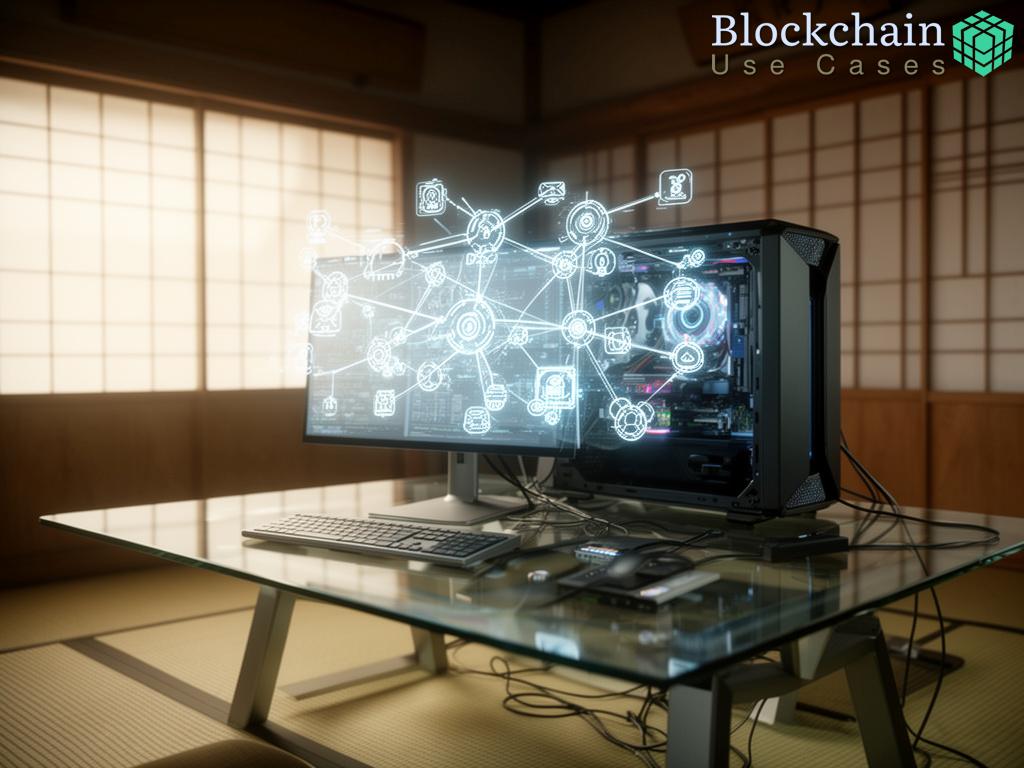Understanding Blockchain Technology in Gaming
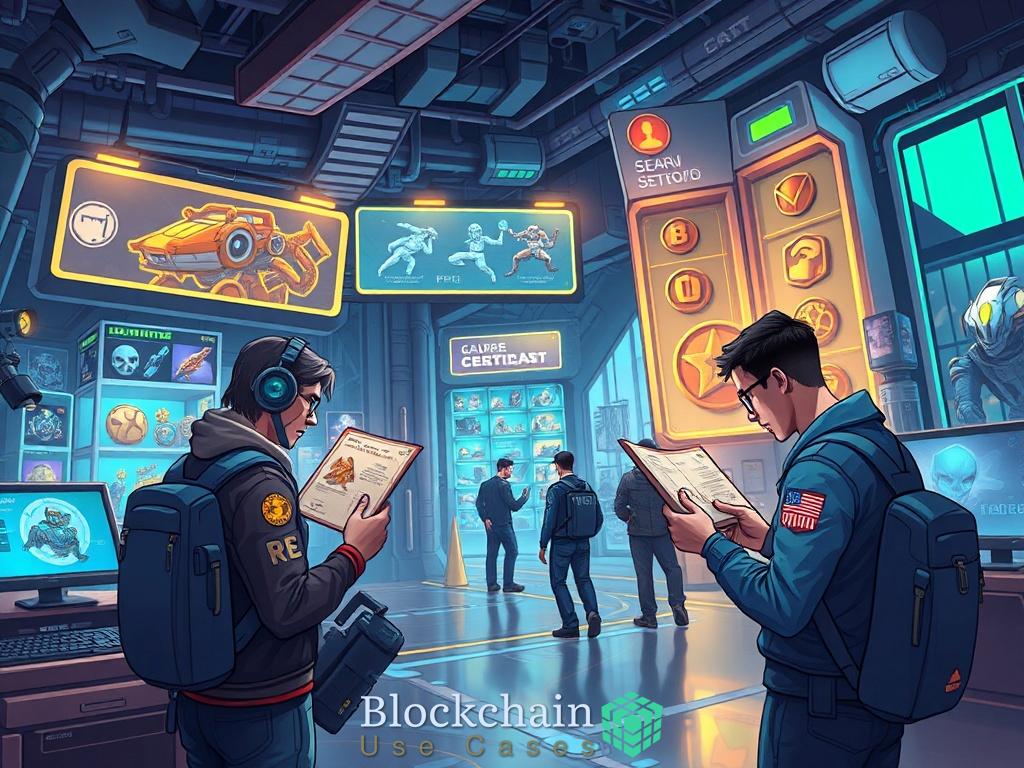
The advent of blockchain technology has revolutionized various sectors, and the gaming industry is no exception. As digital assets become increasingly valuable—ranging from in-game items to entire virtual worlds—ensuring authenticity and ownership is paramount. Blockchain provides a decentralized ledger that records transactions transparently and securely, allowing gamers to verify the authenticity of their collectibles like never before.
In a world where counterfeit items and fraudulent claims can undermine trust, blockchain technology offers a solution by providing a transparent history of ownership and transactions. Each collectible can be traced back to its creation, ensuring that players know exactly what they own. This is especially critical in gaming, where scarcity and uniqueness can significantly enhance an item’s value. Below is an overview of how blockchain enhances authenticity verification:
- Immutable Records: Once data is entered into the blockchain, it cannot be altered, ensuring the integrity of ownership records.
- Decentralization: Unlike traditional databases, blockchain operates on a network of nodes, minimizing the risk of a single point of failure or fraud.
- Smart Contracts: These self-executing contracts facilitate secure transactions without the need for intermediaries, ensuring that terms are met automatically.
- Tokenization: Digital assets can be tokenized, allowing them to exist as unique entities on the blockchain, making it easy to buy, sell, or trade.
As the gaming industry continues to evolve, the integration of blockchain technology will likely expand, creating new opportunities for both gamers and developers. The potential for in-game economies to thrive on decentralized platforms is immense, and the ability to prove ownership of unique items will change the dynamics of gaming culture. Players are not just consumers but also stakeholders in a broader digital ecosystem, highlighting the need for robust systems to ensure authenticity.
The Importance of Authenticity in Gaming Collectibles
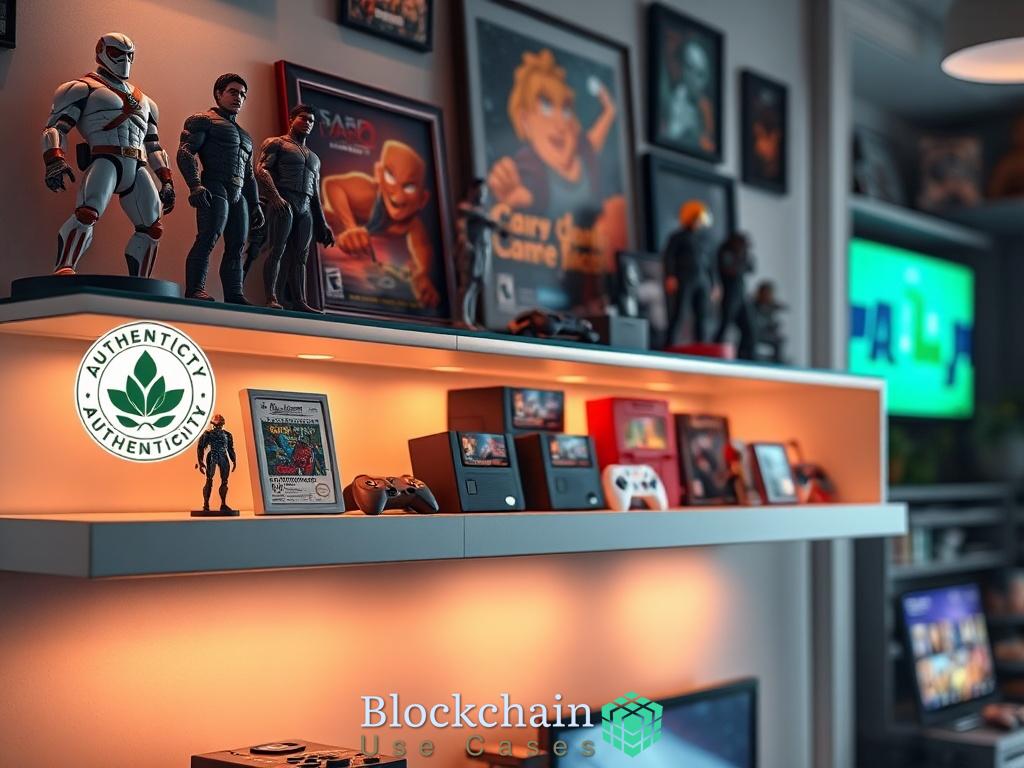
In the rapidly evolving landscape of gaming, the authenticity of collectibles has emerged as a significant concern for both players and developers. As digital assets gain value and significance, the need for verifiable authenticity becomes critical. This is where blockchain technology steps in, providing a robust framework to ensure that gamers can trust the provenance of their virtual treasures.
For gamers, the thrill of collecting unique items is intertwined with the assurance that these items are genuine. The proliferation of digital counterfeits has heightened the demand for systems that can confirm authenticity. Blockchain offers a unique answer by creating an unchangeable record of each collectible’s history. This not only instills confidence among players but also fosters a richer gaming experience.
Transparency plays a pivotal role in the value of gaming collectibles. When players can trace the origins of their items, they are more likely to invest in them, knowing their worth is backed by verifiable data. Blockchain technology provides a transparent ledger that tracks ownership and transaction history, which is crucial for establishing the true value of a collectible. The following points highlight how transparency enhances the value of gaming collectibles:
- Market Confidence: Gamers are more inclined to participate in transactions that provide clear ownership records.
- Scarcity: Unique items can be verified as limited editions, increasing their desirability and market value.
- Enhanced Community Engagement: Players become active participants in the ecosystem, fostering a sense of belonging and investment.
To further illustrate the advantages of blockchain in verifying authenticity, here is a comparative overview:
| Aspect | Traditional Verification | Blockchain Verification |
|---|---|---|
| Ownership Records | Centralized databases prone to manipulation | Decentralized, immutable ledger |
| Transparency | Limited access to information | Full visibility into transaction history |
| Fraud Prevention | High risk of counterfeit items | Significantly reduced risk with verifiable records |
| Transaction Efficiency | Involves intermediaries | Direct transactions via smart contracts |
Mechanisms of Verification Through Blockchain
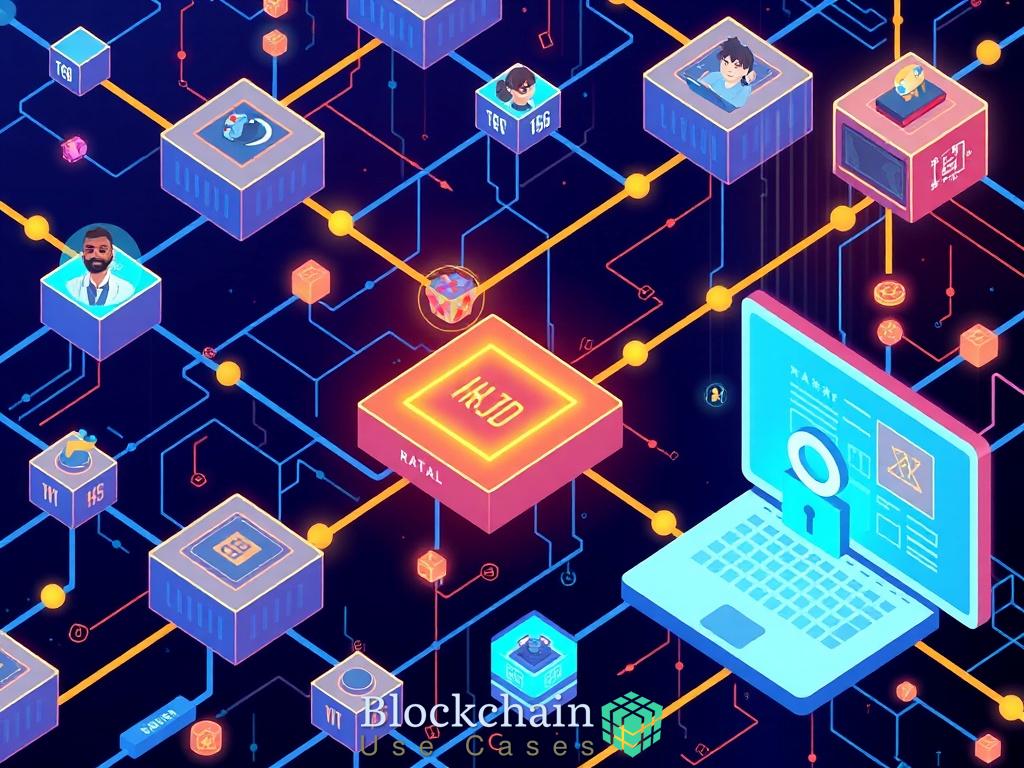
The integration of blockchain technology into the gaming ecosystem has not only transformed the way players interact with digital assets but has also established a robust framework for authenticity verification. As gamers increasingly invest in unique digital collectibles, understanding the mechanisms that underpin this verification process becomes essential. Blockchain’s inherent properties—decentralization, immutability, and transparency—serve as the foundation for a trustworthy environment where players can confidently engage in collecting and trading.
Decentralized Ledger Technology: A New Standard
At the heart of blockchain’s verification capabilities is its decentralized ledger technology. Unlike traditional systems that rely on a central authority to validate ownership, blockchain operates on a distributed network of nodes that collectively maintain a record of all transactions. This means that once a collectible is registered on the blockchain, its ownership history becomes part of a public ledger that is accessible to all. By eliminating the risk of a single entity manipulating records, players can rest assured that their collectibles are genuine and traceable. This transparency is further enhanced by the ability to access the entire transaction history, giving players insights into previous owners, sale prices, and even the original creator of the item.
Smart Contracts: Automating Trust
In addition to the decentralized ledger, smart contracts play a pivotal role in automating the verification process. These self-executing contracts are programmed to execute predefined actions when certain conditions are met, thereby facilitating seamless transactions without the need for intermediaries. For instance, when a player purchases a digital collectible, the smart contract automatically verifies the availability of the item and transfers ownership in real-time. This not only expedites the transaction process but also reduces the potential for fraud, as the conditions set within the contract must be fulfilled before completion. The use of smart contracts effectively shifts the focus from trust in individuals to trust in the underlying technology, creating a safer environment for gamers.
Tokenization: Elevating Digital Assets
Tokenization is another crucial mechanism that enhances authenticity verification in gaming collectibles. By converting digital assets into unique tokens on the blockchain, each item can be distinctly identified and valued. This process allows for the creation of Non-Fungible Tokens (NFTs), which represent ownership of unique items that cannot be replicated. Each NFT carries metadata that includes the collectible’s origin, ownership history, and other attributes, making it easy for players to verify authenticity at a glance. As a result, tokenization not only empowers gamers to engage with their collectibles on a deeper level but also establishes a new standard for value in the digital marketplace.
Case Studies: Successful Implementations in the Industry
The gaming industry has seen transformative changes with the introduction of blockchain technology, particularly in the realm of authenticity verification for collectibles. Several pioneering projects have successfully harnessed this innovative technology to address the challenges of counterfeit items and enhance trust among players. These case studies not only highlight the feasibility of blockchain but also showcase its potential to redefine how players engage with digital assets.
Enjin, a leading blockchain platform for gaming, has emerged as a beacon of innovation by integrating blockchain technology into the gaming ecosystem. By enabling game developers to create, manage, and trade blockchain-based assets, Enjin has set a precedent for authenticity verification. The platform utilizes ERC-1155 tokens, allowing for the creation of unique in-game items that can be easily verified on the blockchain. This ensures that players can trust the provenance of their collectibles, leading to a more engaged community.
Another compelling example comes from Axie Infinity, a popular blockchain-based game where players collect, breed, and battle fantasy creatures known as Axies. Each Axie is represented as a Non-Fungible Token (NFT), ensuring that its ownership, rarity, and transaction history are securely recorded on the blockchain. This innovative approach has not only fostered a thriving marketplace for Axies but has also allowed players to verify the authenticity of their digital pets with ease. The success of Axie Infinity demonstrates how blockchain can transform gaming collectibles into valuable assets, further fueling player engagement and investment.
Future Trends: Blockchain’s Evolving Role in Gaming
As the gaming landscape continues to evolve, the integration of blockchain technology is poised to reshape the future of authenticity verification for gaming collectibles. With the rapid advancement of digital economies and the growing significance of virtual assets, blockchain’s potential to enhance trust and transparency will play an increasingly critical role in how gamers interact with their collectibles. As we explore these future trends, it becomes clear that the synergy between blockchain and gaming will not only enhance the player experience but also redefine the gaming ecosystem.
The Rise of Decentralized Gaming Ecosystems
Decentralized gaming platforms are becoming a focal point for innovation, fueled by blockchain technology. These ecosystems empower players by allowing them to own, trade, and utilize their digital assets across multiple games without the constraints of centralized control. This shift will lead to a more vibrant marketplace where gamers can easily verify the authenticity of their collectibles through blockchain’s immutable records. Such platforms will encourage collaboration among developers, creating a rich tapestry of interconnected games and assets. As this trend develops, players will transition from passive consumers to active participants in a decentralized economy, where the value of their collectibles is directly tied to their contributions.
Integration of Advanced Technologies
The convergence of blockchain with other advanced technologies such as Artificial Intelligence (AI) and Augmented Reality (AR) is set to revolutionize authenticity verification in gaming. AI can enhance the verification processes by analyzing transaction patterns and identifying anomalies that may indicate fraud. Coupled with AR, players can visualize their collectibles in real-world settings, deepening their connection to these digital assets. For instance, a gamer could showcase their unique in-game items within a virtual gallery, with blockchain providing the underlying proof of authenticity. This integration will not only elevate the gaming experience but also instill a greater sense of trust and engagement among players.
Expanding Regulatory Frameworks
As blockchain technology continues to gain traction in the gaming industry, the establishment of regulatory frameworks will be essential. Governments and industry stakeholders are beginning to recognize the need for clear guidelines to protect players and ensure the legitimacy of blockchain-based transactions. These regulations will likely focus on enhancing transparency and security, creating an environment where players can confidently trade and invest in gaming collectibles. Furthermore, regulatory bodies may require game developers to implement robust authentication systems, further solidifying blockchain’s role as a trusted method of verification. This evolution will not only enhance player confidence but also attract more mainstream gamers to the blockchain space.

